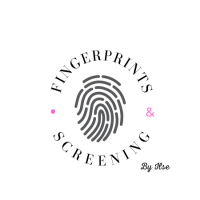Fingerprints outside criminal cases.
Fingerprints have become a powerful tool worldwide in establishing one's identity, especially in criminal cases. However, notable differences in fingerprint policies arise when examining the procedures for obtaining a Certificate of Good Conduct (VOG) in the Netherlands, the United States, and South Africa. In this blog, we delve deeper into the reasons behind the use of fingerprints beyond criminal contexts, highlighting specific examples and distinctions in these three geographical areas.
Fingerprints in the Netherlands - The VOG Procedure:
In the Netherlands, obtaining a Certificate of Good Conduct (VOG) is a common procedure for assessing an individual's criminal history. Remarkably, fingerprinting is not part of this application process. The process primarily relies on checking judicial records. In this case, the Netherlands relies on alternative methods for identification and security screening.
Fingerprints in the United States - Standard Practice:
In contrast to the Netherlands, it is customary in the United States to collect fingerprints as part of obtaining a criminal background check, especially for job applications where security is a critical factor. This is done to conduct a thorough background check and ensure accurate identification of the applicant. The fingerprints you provide are compared against a database of fingerprints obtained from various criminal situations to determine if there is a match.
Fingerprints in South Africa - Broad Front Identity Verification:
South Africa has integrated fingerprints into various procedures, including not only security screening for jobs but also for tasks such as obtaining a driver's license or opening a bank account. This extensive integration of fingerprints into daily processes aims to reduce fraud and ensure robust identity verification. Similarly, in South Africa, the fingerprints you provide are compared against a database of fingerprints obtained from various criminal situations to determine if there is a match.
Why the Difference?
The variance in fingerprint usage between Europe, the United States, and South Africa can be partially attributed to historical, cultural, and legal factors. In Europe, particularly in the Netherlands, emphasis is placed on preserving privacy rights, leading to reluctance in using biometric data, such as fingerprints, except in criminal contexts.
On the other hand, the United States and South Africa have adopted a more pronounced use of fingerprints as a proactive approach to identity verification and security. These countries view biometric data as a powerful means to combat fraud and enhance security, even beyond the realm of criminal justice.
Privacy:
The difference in the use of fingerprints for security purposes between Europe, the United States, and South Africa reflects diverse approaches to privacy and identity verification. While some countries prefer strict protection of individual privacy rights, others see biometric data as a potent means to ensure security. These differences underscore the complexity of balancing privacy and security in a globalized world.
